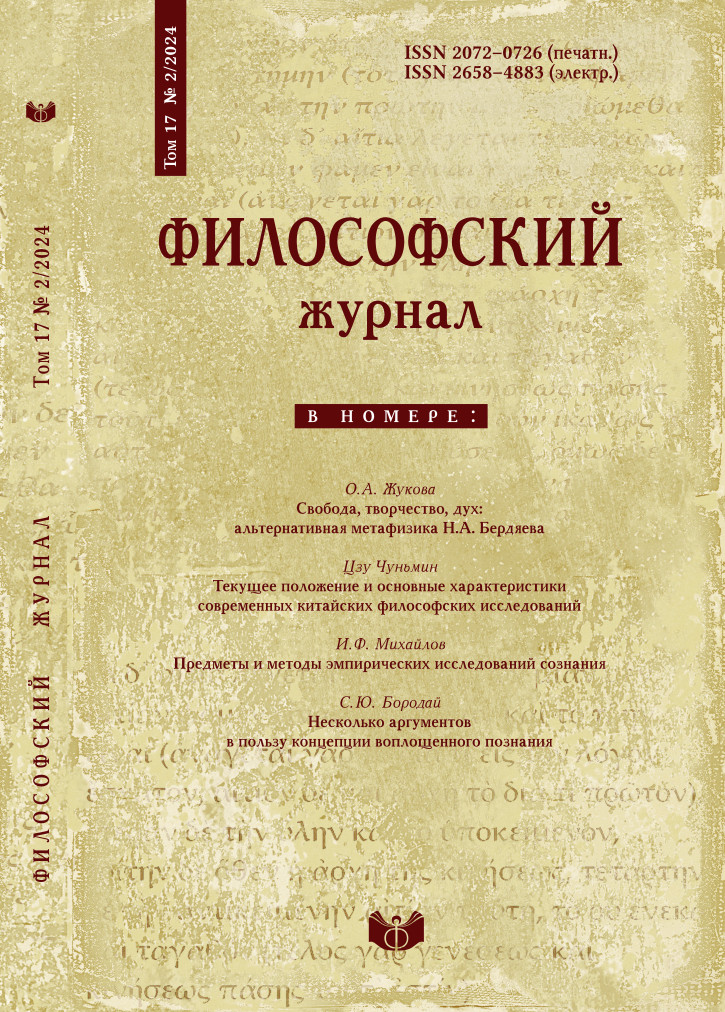Subjects and methods of empirical studies of consciousness
DOI:
https://doi.org/10.21146/2072-0726-2024-17-2-92-109Keywords:
consciousness, neural correlates, integrated information, predictive processing, active inferenceAbstract
Attempts to create empirically based theories of consciousness face two kinds of obstacles. First, the dominant strategy of searching for the neural correlates of consciousness has been unsuccessful due to the lack of working hypotheses about their causal connection with conscious states. The second obstacle is multiplicity of explananda – the lack of sufficient evidence for the belief that everything that we consider to be phenomena of consciousness or conscious states is ontologically unified. Perhaps, these issues are caused by the fact that the sciences of consciousness are devoid of an analog to the radio engineering level, which, in addition to theoretical electrodynamics, is essential for understanding the principles of radio devices’ functioning. This level of knowledge should include a simplified ontology of the subject area, allowing one to isolate fundamental functional relationships at its algorithmic level. Considering the history of the sciences of consciousness and the specifics of their subject, the optimal candidate for the role of the engineering level of knowledge could be a computational approach, which would involve describing the subject as a combination of computational primitives that allow for the implementation of algorithms generating conscious states. Such an approach looks even more promising as non-computational theories of consciousness based on traditional natural science paradoxically remain de facto metaphysical (speculative). In addition to different approaches to the criteria for a “good” empirical (non-speculative) theory of consciousness, the paper provides an overview of a theory of consciousness based on the active inference hypothesis. The analysis of this theory suggests that a computational model underlying a good theory of consciousness should not be deterministic, but probabilistic.






